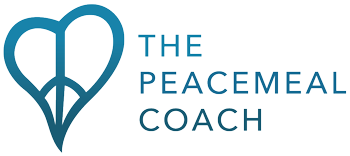When your teen was first diagnosed with anorexia, chances are you were very motivated to do whatever you needed to do to help your child. Watching an illness take over the mind and body of someone you love enables you to do things you don’t want to do. For example, it isn’t natural or desirable to require your teen to do something that terrifies her, and anorexia makes her terrified to eat. But you find a way.
Motivation vs. Inspiration
In the short term, motivation to save your teen can fuel you. But motivation can dwindle as the days, weeks and months of caring for your anorexic teen accumulate. You have a compelling reason to keep going: the health and well being of your child. But sustaining the motivation to keep doing what is necessary to avoid the pain of what could happen if you don’t do it, is not sustainable.
Motivation can be described as self-imposed or societal expectations, obligations, and pressure that push us to act. It comes from urgency. When you run out of motivation, it is hard to keep going. In other words, motivation doesn’t last. You have to find ways to continually renew it. For example, you may at first be motivated to make your teen eat because you are thinking she will die if she keeps restricting. Then, once she gains a certain amount of weight, you will need a new motivating thought to continue to support her recovery.
On the other hand, inspiration can be described as a natural calling that comes from within. Inspiration is tied to why you are doing something, and therefore it can be sustained for longer. For example, you may be inspired to do whatever it takes to support her recovery because you love her, and you believe she has a very bright future.
The distinction between feeling motivated vs. feeling inspired can make a big difference in the actions you take, and therefore the results you will get. When your thoughts stay with your compelling reason, you feel inspired to keep going regardless of what is happening. You are then able to take action from a place of wanting to do what will help your teen recover rather than from having to do what will help your teen recover. The difference between thinking, “I want to do this” instead of thinking, “I have to do this” can be a game changer.
Inspiration is long-term. Most of us know how to motivate ourselves to do something we don’t want to do, but do we don’t know how to inspire ourselves to do it. When we focus on our compelling reason for doing what we are doing, we become inspired. Many people use inspiration and motivation interchangeably, but there is a a distinction. There is a difference between feeling motivated to get your teen to eat because of all of the scary things you read about anorexia vs. feeling inspired to get your teen to eat because of the compelling reason that you love her, and you believe she will recover.
It makes sense to believe you have to push yourself to force your teen to eat, and that you have to remain vigilant at all times to watch for all signs of eating disorder behavior. As a parent, it is very instinctual to put your guard up to protect your son or daughter at the first sign of danger. As the parent of an anorexic teen, it is natural to put that guard up and feel like you can’t ever take it down. If you are stuck in fear, or you are finding it hard to keep supporting your anorexic teen, then learning how to rely on inspiration instead of motivation can be a welcome breakthrough. But before we can become inspired, it helps to understand why we are more likely to keep returning to fear-based motivation.
Why do we act from fear?
We are conditioned to live in fear about anorexia. The stories that are readily available to parents when they are learning about how to help their anorexic teen are overwhelmingly negative. When even the most well-meaning people warn you about the difficulty of treatment and the high likelihood of prolonged illness, it is hard not to swim in the collective pool of anorexia negativity. Being bombarded with such negative messages can influence even the most optimistic mom or dad.
How do you feel when you connect with the beliefs that most people have about anorexia? Do you find yourself gravitating toward the bad news surrounding anorexia? Are you aligning with it, thinking it, believing it? Does it seem like anything you hear or see confirms the bad news? You may have unintentionally picked up some beliefs about anorexia that are not helping you be the parent you want to be. But if the bad press that surrounds anorexia has found its way into your brain, that’s okay.
The energy around anorexia is uninspiring and downright depressing. We can’t change the bad feelings most people associate with anorexia by having our own bad feelings. Nor can we fix the pain our teen is having by matching it with our own pain. But our brains will automatically be drawn to negative feelings when we see and hear how bad anorexia is, and we are confronted with our teen’s anorexic behavior that seems to prove it.
How do we keep fear from controlling us?
The first step is becoming aware of our feelings and the thoughts and beliefs that are creating those feelings. Just as important, after becoming aware of our feelings, is to allow them. We accept that we are human, and that we are experiencing the human condition. The thoughts that are causing our feelings are words that are strung together to form sentences. By learning to see them as just sentences, not the absolute truth, we can start to move toward deliberately becoming inspired.
Another very instinctive response we have as humans, is to judge ourselves once we realize how negative our automatic thinking is. Criticizing ourselves for being human may be normal, but it definitely isn’t helpful. By practicing acceptance of our thoughts instead of beating ourselves up for them, we can clear the way for new and intentional thoughts that will create the inspiration that can propel us down the path toward our teen’s recovery.
Most of the information available to us is designed to convince us that we are powerless against anorexia, but we are only powerless if we believe we are. No matter how many urgent messages we receive that tell us we must live in fear, it is always our choice to decide not to listen. If your motivation to get your anorexic teen to eat is fear-based, and you are living in dread of the obligations you have to take care of her, then you are only creating more of what you fear and dread. We get whatever we think about, whether it is what we want or not.
One of the most helpful concepts I’ve read about the emotion of fear is that it can be defined as False Evidence Appearing Real. When we can step back and look at our fear in this way, we are no longer obligated to believe it.
How do we act from inspiration instead of fear?
1. Become aware of what you are thinking.
2. Create an intentional thought that inspires you.
3. Decide that nothing and no one can interfere with your inspiration.
4. When confronted with beliefs that don’t match yours, let them go.
You will encounter people with good intentions who have ideas about the treatment your teen should or shouldn’t be getting, and that’s fine. Your willingness to act on your inspiration as a parent, regardless of the opinion of others, is where your power is. Encountering resistance is not a sign that something is going wrong. Commit to the belief that you know what you are doing and why you are doing it.
How do we stay inspired?
Acting from inspiration means not being attached to a certain outcome or a specific timeline. Keep in mind that inspiration doesn’t come from getting results; results come from inspiration. To be inspired, you don’t need anything more than what you have in this very moment. In other words, inspiration is available to you right now.
1. Take your focus off of what you see and hear about anorexia.
2. Stop searching for evidence of what you don’t want.
3. Instead, start trusting what you already know.
4. Intentionally focus on what you want.
5. Find evidence of how much you already have.
Your teen’s anorexia is a circumstance that can keep even the most confident parents from taking action because we fear that nothing will help. The fact is that the results we want will not adhere to our schedule or anyone else’s. By taking our focus off of when we will get to our desired result, we can allow the recovery process to happen exactly as it is meant to happen. Any obstacles that appear are not indications that something has gone wrong. When we worry about everything that can go wrong, we create results that affirm our worry. Feeling inspired instead of worried is as simple as shifting our thoughts. By thinking that what we want is on its way, we feel inspired to keep going. By seeing all obstacles as opportunities, we can be in the present moment with our teen. We can experience peace, and we can love her exactly where she is.
I recently listened to my teacher, Brooke Castillo, coach a woman who thought that because she wasn’t getting the results she wanted, that what she was doing wasn’t working. She wanted to know what she could change about her actions that would get her to her results sooner. Brooke’s response was one that applies beautifully to parents of anorexic teens who are feeling that nothing is working to help their teen recover. Brooke explained to her client that up until the point that what we are doing gets us the results we want, what we are doing isn’t working. She suggested that believing that it is working instead of changing what we are doing is the key to getting there.
Not long after I listened to that coaching session, I experienced this with my own anorexic teen. So, if it feels like nothing you are doing is making a difference, don’t give up! Every single small action counts. Every bite adds up. Searching for and finding evidence that aligns with your results leads to seeing more and more progress.
We don’t need our circumstances to change so we can feel better. We can feel better now. We can go from feeling dread about continuing to support our teen’s recovery to feeling inspired to love her throughout the entire journey no matter what. When we make this shift, everything changes.
• We focus on what we want instead of what we don’t want.
• We are inspired to be the parents we want to be.
• We experience apprehension and fear with each stage of recovery, and we move forward in spite of it.
• We never give up.
• We allow our teen’s anorexia to be exactly as it is instead of believing it shouldn’t have happened.
• When one thing goes wrong, we find multiple things that are going right.
I recommend investing in inspiration. I would have kept going forever if I knew that we would get here:
She is eating independently.
She is overcoming fear foods on her own, adding peanut butter to her oatmeal and sunflower seeds to her salad.
She is socializing.
She is not only making friends and going places with them, she is eating with them.
She is putting things in perspective, and not letting disappointments get her down.
She is enjoying her life.
She is working on confidence as a goal, and is seeing fast improvement.
She is trying things that scare her.
She is dancing.
She is proud of herself.
She is not only smiling; she is beaming.
She is inspiring.
I am so grateful for the tools that have taught me how to create the beliefs and emotions that I want in my life. They have empowered me to feel inspired to be the mom I want to be for my daughter. Without them, I would have stayed in fear. I am now in awe.
If you have lost your motivation to keep going, or you feel like nothing is working in your teen’s recovery, my Peacemeal Program can help you create the inspiration you need to reach your goals.





